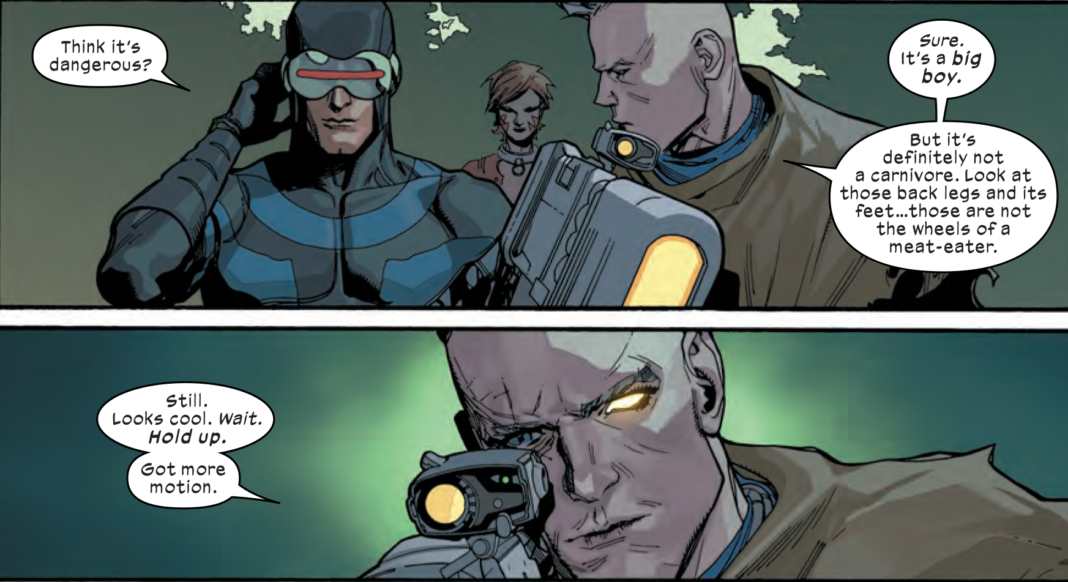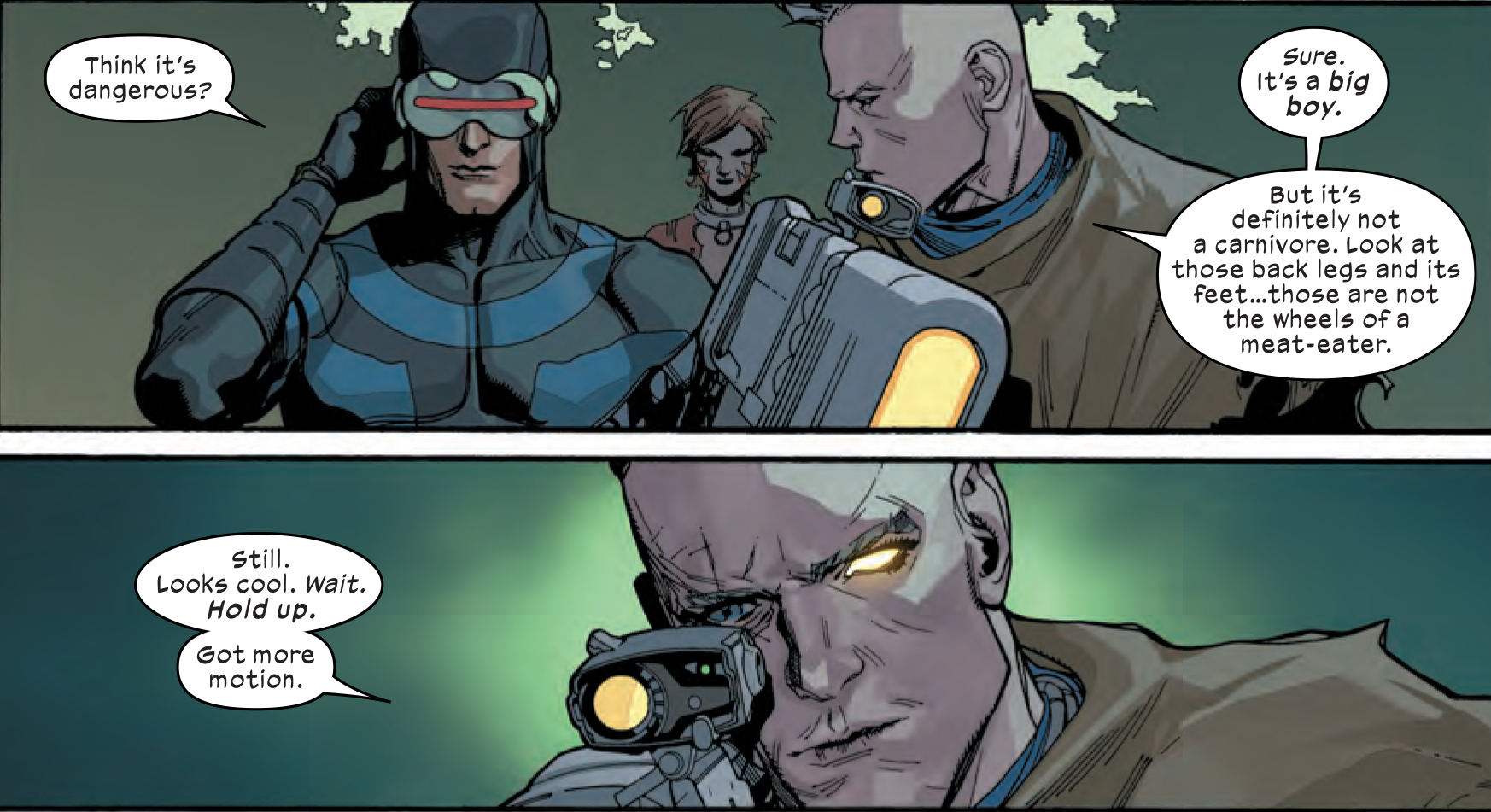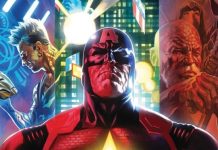Another week, another glorious X-Men comic to sink our teeth into. This week, fans are treated to X-Men #2 as well as the debut of Bryan Hill’s, Szymon Kurdranski’s and Frank D’Armata’s Fallen Angels. There’s a lot happening on Krakoa — the entire nation is in lockdown after Xavier’s murder in X-Force last week — but that won’t stop Nathan Summers, a.k.a. Cable, from having a good day.
I don’t mean to offend any diehard Rob Liefeld fans, but Cable is probably at the bottom of my “favorite Summers family member” list (I love you Gabriel). Despite my bland feelings on past depictions of the character, there’s something about his teenage persona that works for me. Cable’s excessive aesthetic — shiny chrome and big guns — helped make the character a hit when he first debuted in 1990, but now it feels a bit basic and out-of-date.
Following a teenage version of Cable — someone who’s not as set in his ways as his grizzled, experienced counterpart — makes his obsessive, almost boisterous behavior more appropriate. Some boys like cooking and reading, while others prefer cars and explosions. Cable is just one of those chaotic boys looking to make his loud presence felt in the world.
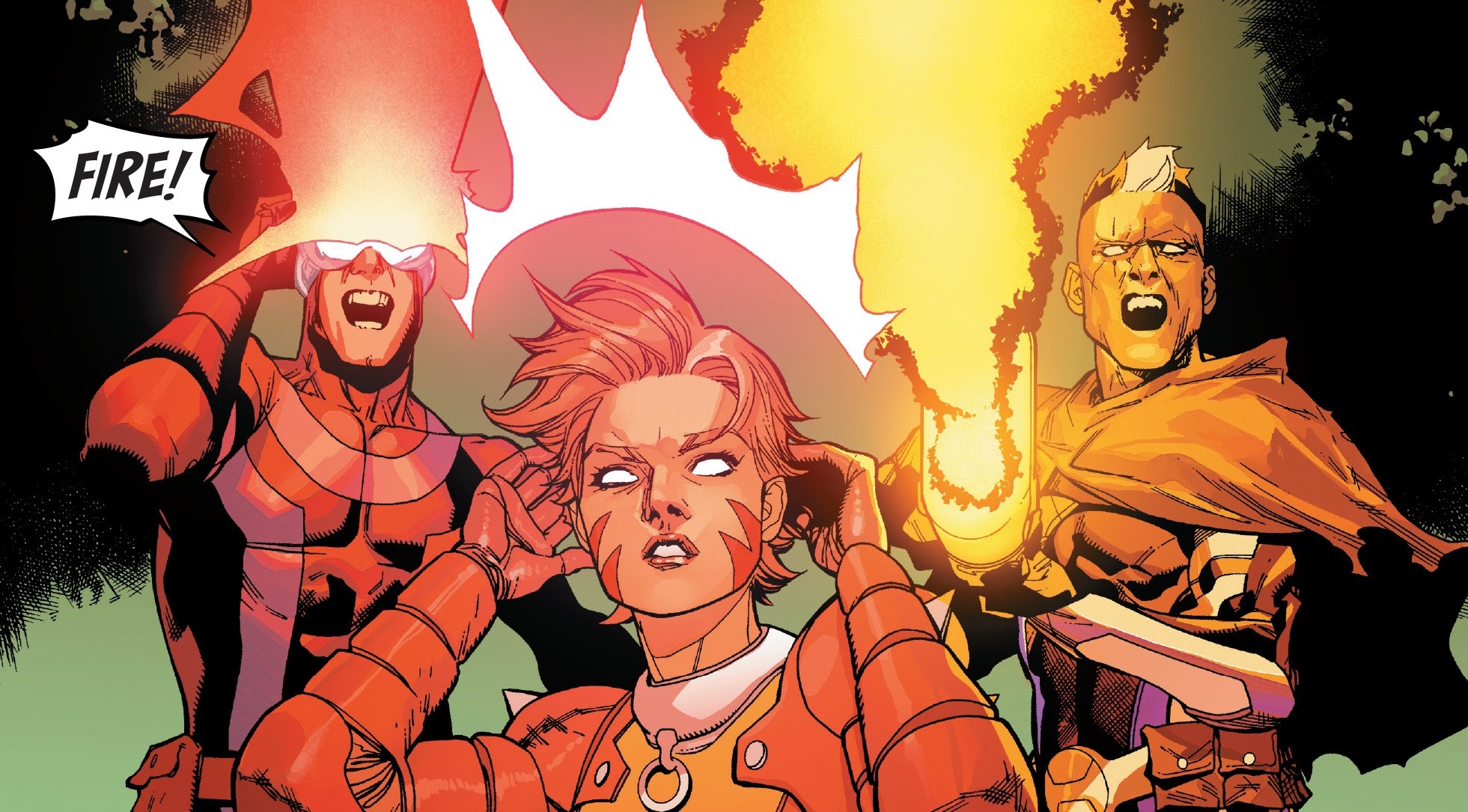
As both X-Men and Fallen Angels happily remind readers, Cable is a soldier, and as a soldier he’s on the hunt for a mission in the midst of this new peaceful era. X-Men takes the character on a classic comic book adventure, a quest to a mysterious island with his dad and half-sister Rachel; Fallen Angels seemingly positions him to be a player in a larger battle to come against a shady, spiritual organization tied to Kwannon’s past. Beyond that shared understanding though, the character’s voice isn’t entirely uniform in both titles, which is a misstep that makes me slightly anxious about his role in future X-Men stories.
There’s so much cohesion in all of the Dawn of X stories — as seen in how Fallen Angels and X-Men both mention the death of Charles Xavier — that Cable’s disjointed characterization is a surprise.
In X-Men, the character can be boiled down to an eager, arrogant teen who just wants his father’s approval. Sure, his hijinks with a grenade temporarily cause trouble, but it’s clear he truly doesn’t mean for anything negative or provoking to take place. Essentially, he’s a good boy who just loves making things go “boom.” His massive arsenal and specialized scopes make him an ideal figure to take point on any team, but the way Jonathan Hickman depicts him as an eager, curious individual reinforces the idea that he would be out in front discovering safe paths for his squad members.

Fallen Angels, on the other hand, treats Cable like a basic frat boy. While both issues show Cable eager to dive into action, there’s something depressingly “Chaddy” about the way Hill writes him.
As Krakoa’s citizens dance the night away, Cable sneaks up on Laura Kinney and teases her about not joining the festivities. His clunky attempt at flirting quickly leads to an unnecessary sparring round that ends with him on his butt and the two of them being whisked away to Psylocke’s house.
The scene has a purpose: making it plainly aware that Laura — just like Logan — thinks Krakoa’s safe environment leads to apathy and complacency for a community who is used to fighting for their survival. However, at a quick glance, the scene could just as easily be read as Cable creeping up on a girl enjoying her private, quiet time. While it looks like the two characters will be near each other for the foreseeable future, it doesn’t seem like Laura particularly enjoys his company. Equally distressing, it seems that Cable, an individual who has previously been painted as a respectful, polite(ish) figure, mocks Psylocke’s tea offering when he and Laura arrive at her home instead of graciously declining.
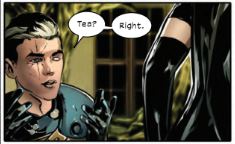
I have a lot of problems with Hill’s handling of Kwannon in this issue, but Laura’s characterization is equally troubling. She has a lot of moody dialogue and makes a comment about wanting “a life without Logan’s shadow” that seemingly erases years worth of emotional development for the character. Her fireside tango with Cable also feels borderline unnecessary. I’m not sure who in the X-Men writers’ room pitched that Wolverine’s clone and Cyclops’ future-son should potentially hookup, but the idea doesn’t really hold up beyond its connection to the larger X-legacy.
It’s not uncommon for members of the X-Men to appear in multiple books simultaneously, but the fact that both series give Cable such a different vibe worries me. With both of these issues dropping on the same day, it’s hard to ignore this personality shift that likely would have been unrecognizable had the issues shipped on separate weeks. Regardless of how I feel now, I trust in Hill and Hickman (and any other X-writer who tackles the character) to create a compelling, enriching, engaging emotional arc for him; I just hope things start coalescing sooner rather than later.
All of the character drama made it hard to realize that Hickman finally gave readers the one thing they’ve been waiting for this whole saga: two islands bumping and grinding their massive landmasses together. With that exciting benchmark out of the way, who knows where the story will lead next week?! Make sure to read last week’s column about the false sense of security on Krakoa and check back next week to break down even more HiX-Men goodness!


